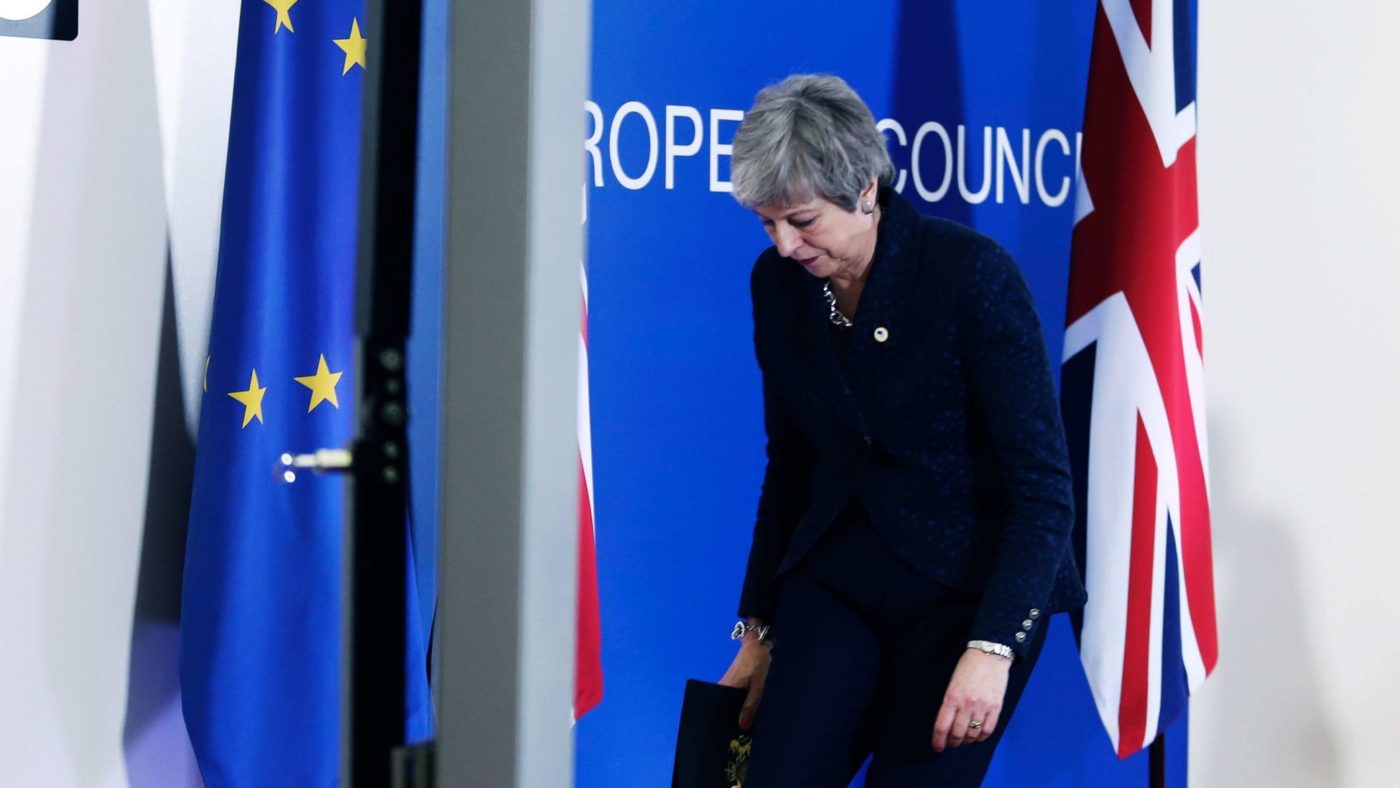On Thursday night in Brussels, European leaders gave Theresa May room to breathe, offering her an extension of Article 50 either until May 22 if the Withdrawal Agreement is met with approval in the House of Commons or until April 12 if it is not.
That second date matters because it is the latest point at which the UK can decide to take part in the European elections. British participation in that vote would be both farcical and absolutely necessary if the UK wants anything other than a short, technical extension.
The postponement returns the focus to Westminster – where the next steps still remain unclear. In a letter sent to MPs on Friday night, the Prime Minister suggested that a third vote on the Brexit deal will not take place if ‘it appears there is not sufficient support’.
Earlier in the day, David Lidington – May’s de facto deputy – met opposition leaders to discuss ways in which to hold indicative votes on alternative ways forward in the House of Commons. Whether or not, when and how those votes would take place all remains unconfirmed at this point in time.
Predicting what happens next would, right now, be foolish. We have entered the Brexit twilight zone. Every day is a day closer to Brexit. But exactly when it will come, and what form it will take is less clear than at any stage since Theresa May wrote to Donald Tusk triggering Article 50 two years ago.
Understandably, the limbo is not a situation the British public are comfortable with. According to a Sky poll this week, 90 per cent of the British public think the UK’s handling of its departure from the EU is a ‘national humiliation’. A petition to revoke Article 50 has, at the time of writing, received just shy of four million signatures.
If there is a common theme that explains how that humiliation came about, it is the consistency with which the actors in the Brexit saga have opted for the path of least resistance, always thinking about the next step rather than their final destination.
For some time now, for example, Downing Street has struck a defensive pose. Survival is the order of the day as the most immediate threats – to May’s deal and her premiership – are neutralised. The result is the confusion surrounding the Prime Minister’s preference, if there is no majority for her deal: no deal or long delay?
But if May can be accused of short-term thinking, so can more or less every other player and faction. Everyone seems determined to take the easiest available path.
Labour continues to adopt a position of absurd ambiguity that would not last an hour of scrutiny were they in Government rather than Opposition. As Tom Harris explained on CapX this week, the party’s many logic-defying contortions on Brexit have been determined not by what makes sense for Britain, but whether the stance of the moment is sufficiently different from the Conservatives.
With one or two honourable exceptions, Opposition backbenchers continue to pose as the only adults in the room whilst doing nothing constructive. Take the very many MPs who issue dire warnings about the consequences of no deal – but refuse to vote for the deal that will prevent it.
Likewise, many Brexiteer opponents to May’s deal seem content to restate their objections to the only offer on the table, without acknowledging that they are simultaneously risking no Brexit at all.
Then there is arguably the most intransigent group of all: those on the other side of the negotiating table. For months, EU leaders have refused to take seriously the warning that without changes, the deal was a nonstarter. Their response was to make triflingly small tweaks to a document that has become a source of instability – not the steadying force it was intended as. In particular, a backstop designed to avoid a hard border in Northern Ireland is risking that very consequence.
Criticism, not compromise, is the order of the day. And, when no party has a majority in the House of Commons, the result of such an approach is stalemate.
That is why, if indicative votes are indeed to take place next week, the Government could do well to coax the various factions into expressing a view not just on their first preference but their second and third as well. And a clue from Number Ten as to the Prime Minister’s preferred plan B would bring much-needed clarity.
As long as MPs take the path of least resistance, opposing everything other than their preferred outcome, we will be stuck in the twilight zone we find ourselves in today.
CapX depends on the generosity of its readers. If you value what we do, please consider making a donation.


